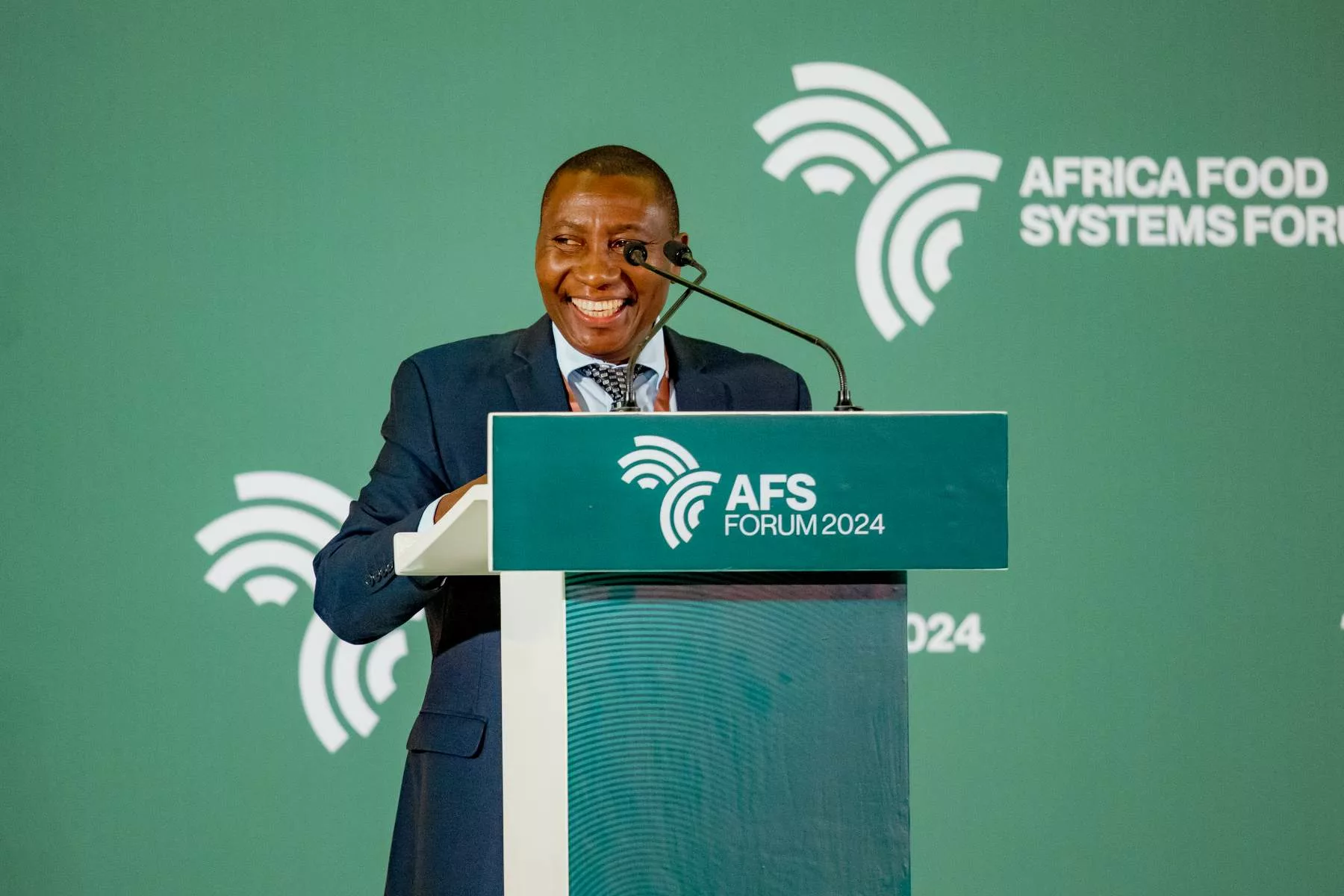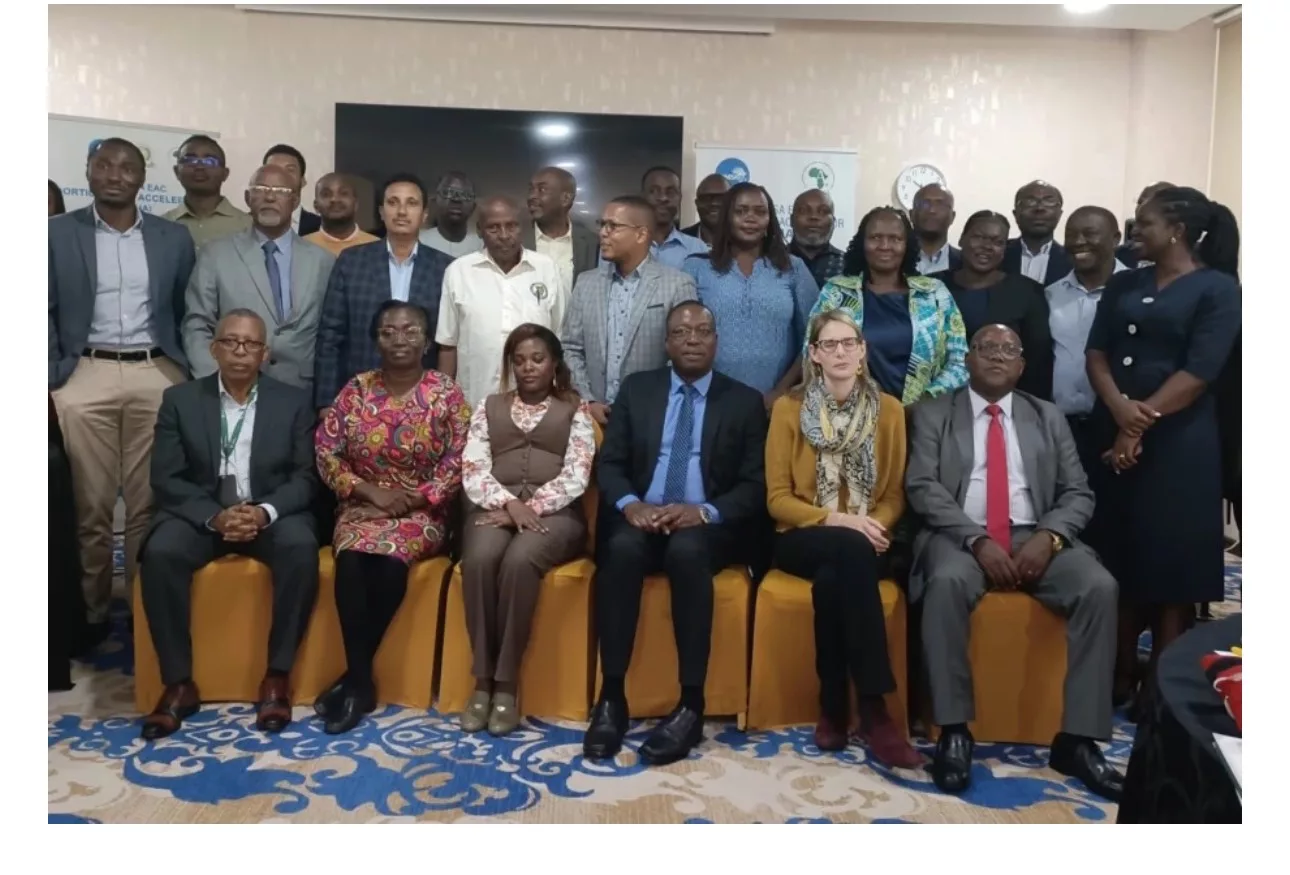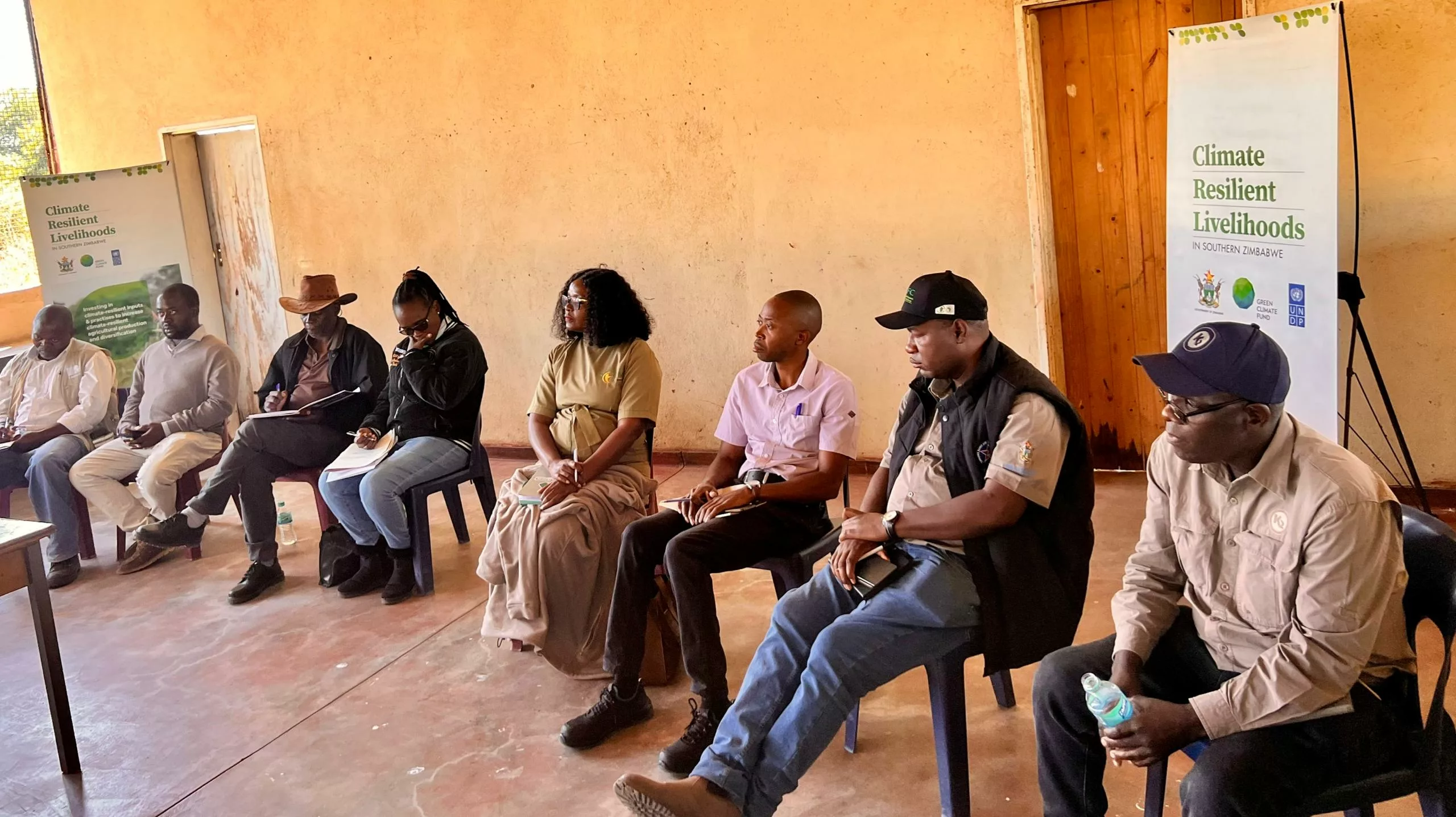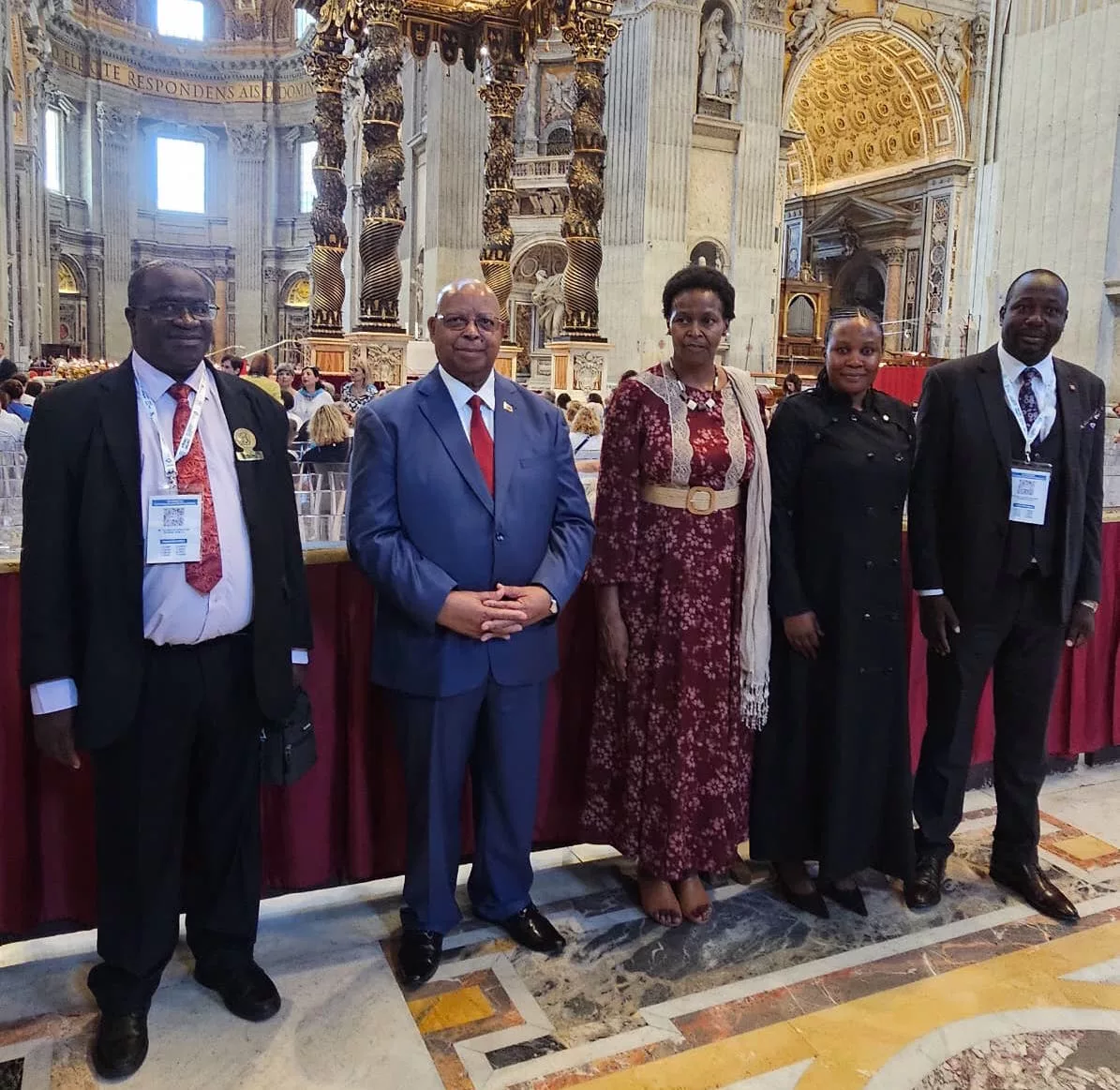|
Getting your Trinity Audio player ready...
|
H.E. Amb. Josefa Sacko, Commissioner for Agriculture, Rural Development, Blue Economy and Sustainable Environment of the African Union Commission has called for increased investments in agricultural research and development.
She was speaking through the Director of her Department, Dr. Godfrey Bahiigwa, during the official opening of the Africa Food Systems Forum that is running under the theme ‘Innovate, Accelerate, and Scale: Delivering Food Systems Transformation in a Digital and Climate Change Era.’
“The theme of this year’s Forum – Innovate, Accelerate, and Scale: Delivering Food Systems Transformation in a Digital and Climate Change Era is quite appropriate. As we commit to transforming Africa’s agri-food systems, we are faced with rapid changes in technology as well as challenges brought about by climate change. These are in addition to other drivers of agri-food systems in Africa which include: population growth that is expected to rise to 2.5 billion people by 2050, rapid urbanization and changing consumer patterns, as well as rising incomes and an expanding middle class.
“To adapt to these changes, we must innovate through increased investments in agricultural research and development. We must accelerate the rate of development and adoption of appropriate technologies and innovations. We must do so at a scale that will match the needs of the continent: food and nutrition security, jobs for youth and women, and wealth creation while protecting the environment. In short, we need to build sustainable and resilient agri-food systems for a healthy and prosperous Africa,” Commissioner Sacko said.
In an interview with journalists on the sidelines of the opening session, Dr. Agnes Kalibata, the President of the Alliance for a Green Revolution in Africa (AGRA) reiterated the need for stakeholders to work together to transform African food systems. She also explained the interplay between the use of inorganic fertilizers and conservation farming methods like agroecology.
“This can not necessarily happen at the pace we want, but at the end of the day, youth and women must be put at the center while recognizing that producing food without thinking about the environment is no longer an option. So we have to think about the implications and impact of what we do from an environmental perspective. When we are using fertilizers, we need to understand them. We need them, especially here in Africa, because we have highly eroded soils. We have nutrient deficiencies that we don’t find anywhere else in the world. So we use fertilizers.
During the 5th Ordinary Session of the AU Specialized Technical Committee (STC) on Agriculture, Rural Development, Water, and Environment that was held in November 2023 in Addis Ababa, the Ministers requested that AU Commission and AUDA-NEPAD, working with regional economic communities and partners to develop a post-Malabo CAADP agenda for the next 10 years.
The 37th Ordinary Session of the African Union Assembly that was held in February 2024 decided to hold an Extraordinary Summit in 2025 in Kampala, Uganda to consider the post-Malabo Comprehensive Africa Agriculture Development Program (CAADP) agenda.
The African Union, working with RECs and with the support of various partners, has led the formulation of the draft CAADP Strategy and Action Plan: 2026-2035 which was presented a fortnight ago to stakeholders in Kampala, Uganda for validation to make sure that the strategy covers the key issues that need to be considered in the efforts to transform agri-food systems in Africa over the next 10 years.






